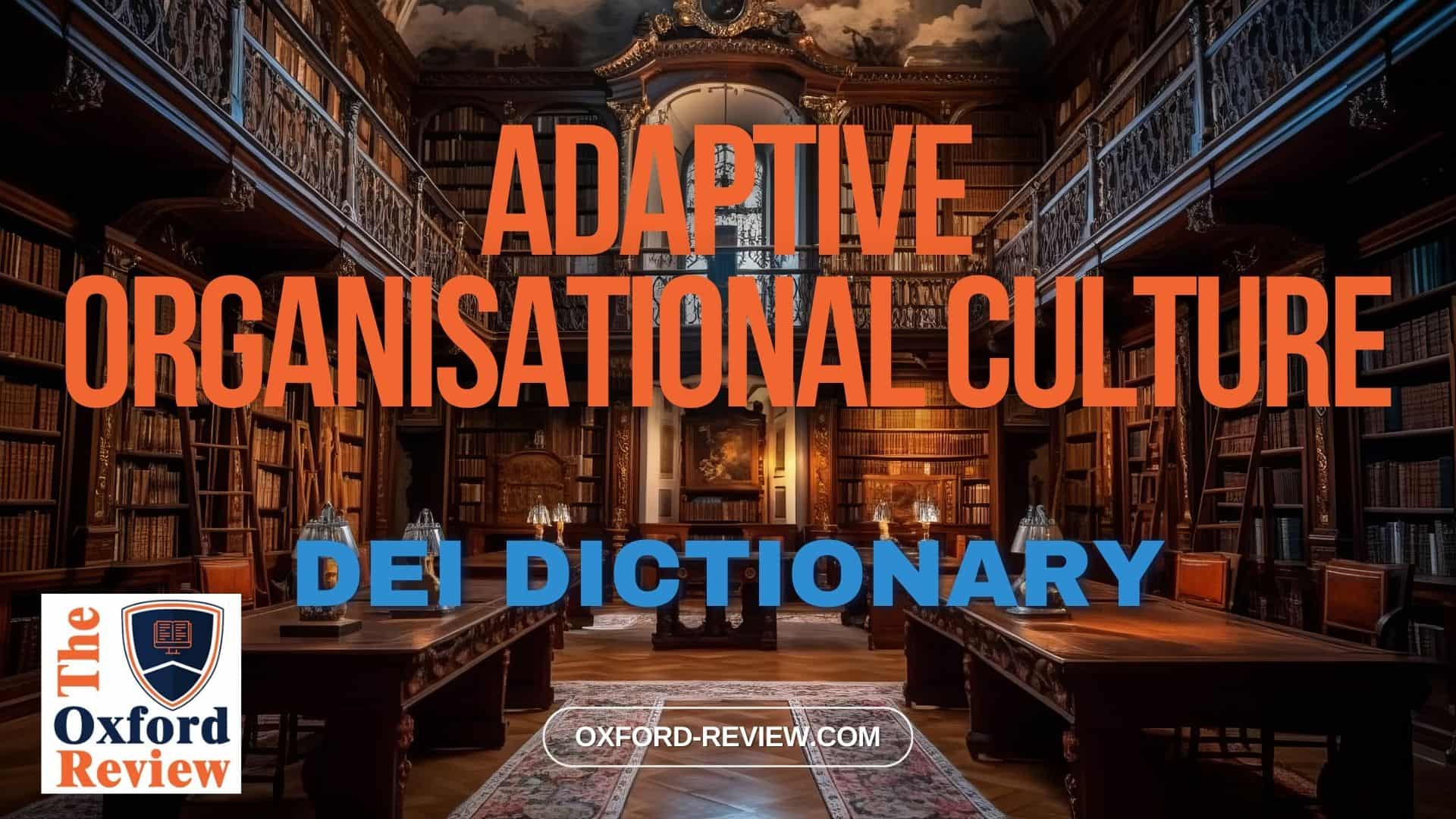Adaptive Organisational Culture – Definition and Explanation

Unlocking Success: Understanding Adaptive Organisational Culture
In today’s rapidly evolving business landscape, organisations are increasingly recognising the importance of fostering diversity, equity, and inclusion (DEI) within their structures. One pivotal concept that has emerged in this realm is Adaptive Organisational Culture. This transformative approach not only embraces DEI principles but also actively evolves to meet the dynamic needs of the modern workforce and marketplace.
Definition:
Adaptive Organisational Culture refers to a workplace environment that embraces change, diversity, and inclusivity as fundamental pillars of its operation. Unlike traditional hierarchical cultures, adaptive cultures prioritise flexibility, innovation, and continuous learning. They acknowledge the diverse backgrounds, perspectives, and experiences of employees, leveraging them to drive innovation and growth.
Key Features of Adaptive Organisational Culture:
- Flexibility: Adaptive cultures are agile and flexible, capable of swiftly responding to internal and external changes. They encourage experimentation and risk-taking, fostering an environment where employees feel empowered to adapt and innovate.
- Inclusivity: Inclusive practices are woven into the fabric of adaptive cultures. These organisations celebrate diversity and create spaces where all voices are heard and valued. By embracing diverse perspectives, they can better understand their customers’ needs and tap into new markets.
- Continuous Learning: Learning is a cornerstone of adaptive cultures. Employees are encouraged to seek out new knowledge and skills, and the organisation provides resources and support for their development. This commitment to learning fosters a culture of growth and adaptability.
- Transparent Communication: Transparent communication is vital in adaptive cultures. Leaders openly share information, seek feedback, and encourage dialogue across all levels of the organisation. This fosters trust and ensures that everyone is aligned with the organisation’s goals and values.
Example:
One exemplary company known for its adaptive culture is Google. Google fosters an environment where employees are encouraged to explore new ideas, take risks, and learn from failure. The company’s “20% time” policy allows employees to dedicate a portion of their workweek to pursue passion projects, leading to innovations like Gmail and Google Maps. Google’s commitment to diversity and inclusion is also evident in its initiatives to increase workforce representation and create an inclusive workplace for employees from diverse backgrounds.
Conclusion:
Adaptive Organisational Culture represents a paradigm shift in how businesses operate in the 21st century. By embracing diversity, equity, and inclusion and fostering a culture of adaptability, organisations can unlock the full potential of their workforce and stay ahead in an ever-changing world. Investing in an adaptive culture not only enhances employee satisfaction and engagement but also drives innovation and sustainable growth. Embrace the power of Adaptive Organisational Culture and pave the way for success in the modern business landscape.
References:
Douglas, C. (2018). Adapting to organisational culture: A staged adaptation model. https://uhra.herts.ac.uk/handle/2299/20284
Be impressively well informed

Get the very latest research intelligence briefings, video research briefings, infographics and more sent direct to you as they are published
Be the most impressively well-informed and up-to-date person around...
